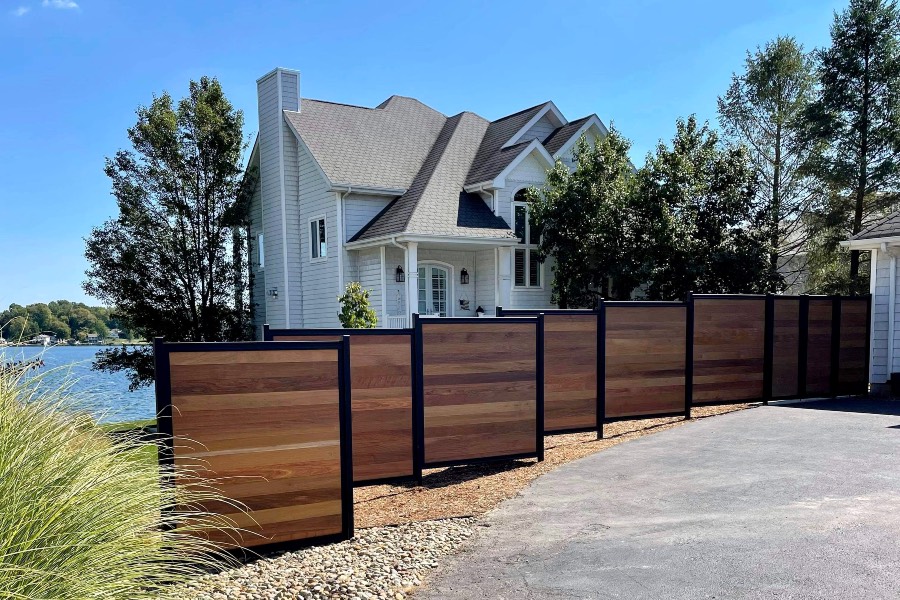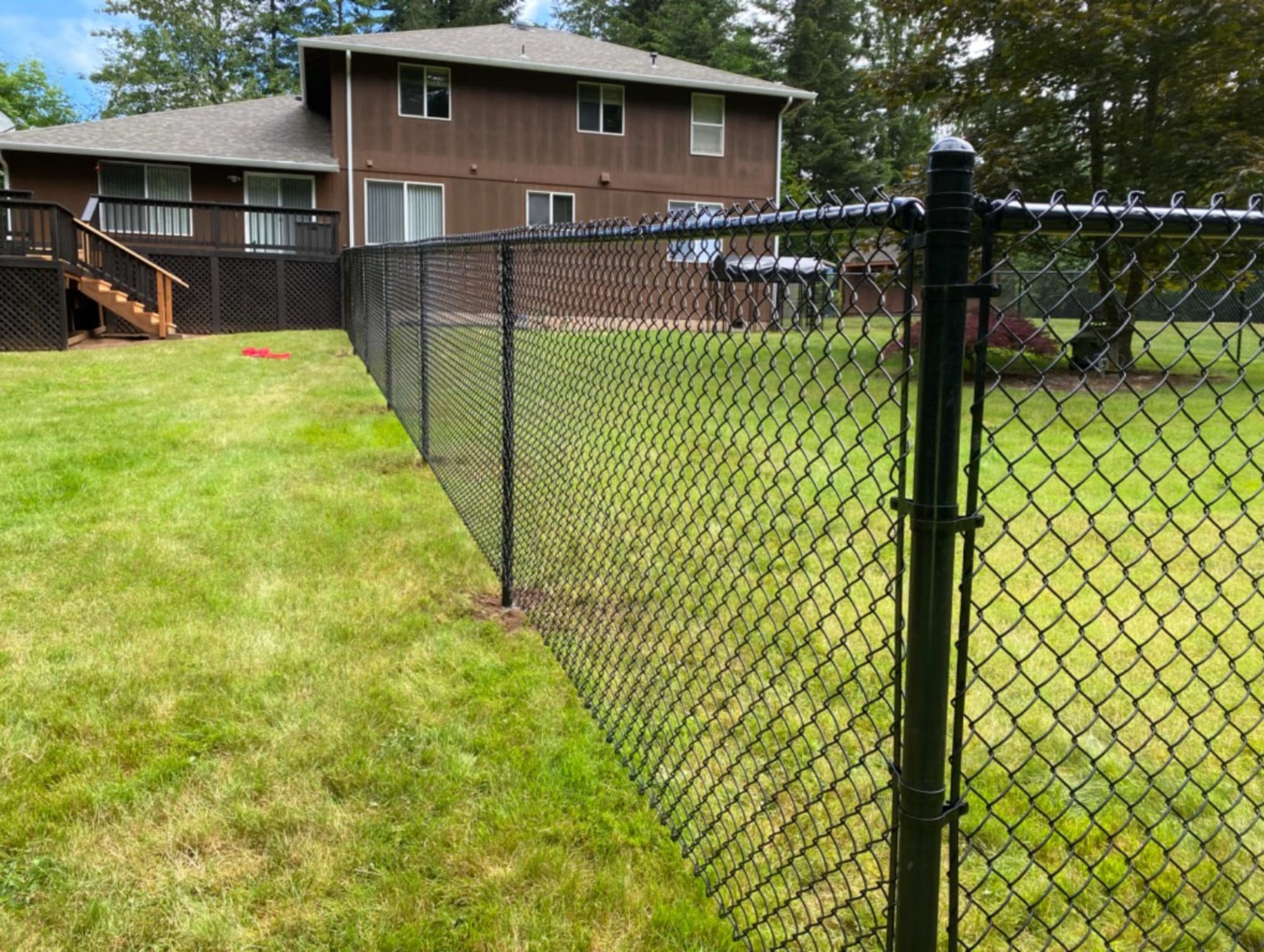All Categories
Featured
If you're thinking about installing a fence around your residential property, comprehending the license requirements in your location is important. In this overview, we'll break down the various permits you might require to mount a fence and just how to ensure your task stays certified with local legislations.
Why Are Allows Needed for Fencing Installation? Authorizations are called for to guarantee that the fence you build adheres to neighborhood building codes, zoning laws, and safety standards. They ensure that the fence will not obstruct energies, web traffic circulation, or develop risks for pedestrians.
![]()
Kinds Of Permits You Might Requirement. Structure Authorization. A structure license is one of the most common requirement for installing a fencing. This permit ensures that the framework you build adhere to local security codes and policies. You might require to obtain a building license if your fence exceeds a specific elevation (typically around 6 feet) The local authorities will commonly evaluate your plans to make sure that your fencing is secure and structurally audio.
Zoning License. A zoning authorization makes certain that your fencing conforms with these policies. Your fencing may require to be established back a particular range from sidewalks or property lines.
Homeowners Association (HOA) Approval. If your residential or commercial property is component of a house owners association, you may require approval prior to setting up a fence. HOAs typically have rigorous rules relating to the type, style, and products made use of for fences to keep an uniform appearance throughout the area.
Specialty Permits. In many cases, you might need specialty allows based upon the location of your home or the nature of your fence. As an example, if your residential or commercial property remains in a disaster area, you might need extra authorizations to make sure that your fencing does not obstruct drainage or water circulation. If you prepare to build a fence near an environmentally secured location, you might require an unique permit to comply with ecological guidelines.
![]()
Utility Easements and Energy Business Authorizations. Prior to installing a fencing, you have to examine if your building has an easement. Constructing a fencing within an easement could conflict with energy upkeep or damage underground lines.
How to Determine Which Permits You Need. Get In Touch With Local Authorities. The first action in figuring out the permits needed is to contact your regional building department or zoning workplace. They can offer particular information about what licenses are needed for your location. Many cities have on-line resources or websites where you can examine the needs or even request a permit online.
Consult a Specialist Fence Professional. A local fencing service provider is often knowledgeable about the authorization process and regional guidelines. They can help you browse the needs and guarantee that your task is compliant. Lots of professionals likewise manage the permit application process in your place, saving you time and effort.
Evaluation Your Area's HOA Standards. Make sure to assess their guidelines before applying for any licenses if you live in a neighborhood controlled by an HOA. The HOA might require certain layouts, materials, or elevation restrictions for fences within the community. Submit your plans to them for approval before proceeding.
![]()
Repercussions of Not Obtaining a License. Mounting a fence without the required authorizations can result in serious effects. You might face penalties, be gotten to remove the fencing, or be called for to redo the installation to meet code demands. On top of that, offering your home might be complicated if the fencing does not satisfy neighborhood regulations. Potential purchasers may wait to buy a building with an unpermitted fencing, specifically if it's in infraction of zoning laws.
Conclusion. Prior to mounting a fence on your property, make sure you understand the regional laws and obtain any kind of required licenses. Building licenses, zoning licenses, HOA authorizations, and specialized permits all play a crucial role in guaranteeing that your fencing is secure, legal, and certified.
Why Are Allows Needed for Fencing Installation? Authorizations are called for to guarantee that the fence you build adheres to neighborhood building codes, zoning laws, and safety standards. They ensure that the fence will not obstruct energies, web traffic circulation, or develop risks for pedestrians.

Kinds Of Permits You Might Requirement. Structure Authorization. A structure license is one of the most common requirement for installing a fencing. This permit ensures that the framework you build adhere to local security codes and policies. You might require to obtain a building license if your fence exceeds a specific elevation (typically around 6 feet) The local authorities will commonly evaluate your plans to make sure that your fencing is secure and structurally audio.
Zoning License. A zoning authorization makes certain that your fencing conforms with these policies. Your fencing may require to be established back a particular range from sidewalks or property lines.
Homeowners Association (HOA) Approval. If your residential or commercial property is component of a house owners association, you may require approval prior to setting up a fence. HOAs typically have rigorous rules relating to the type, style, and products made use of for fences to keep an uniform appearance throughout the area.
Specialty Permits. In many cases, you might need specialty allows based upon the location of your home or the nature of your fence. As an example, if your residential or commercial property remains in a disaster area, you might need extra authorizations to make sure that your fencing does not obstruct drainage or water circulation. If you prepare to build a fence near an environmentally secured location, you might require an unique permit to comply with ecological guidelines.

Utility Easements and Energy Business Authorizations. Prior to installing a fencing, you have to examine if your building has an easement. Constructing a fencing within an easement could conflict with energy upkeep or damage underground lines.
How to Determine Which Permits You Need. Get In Touch With Local Authorities. The first action in figuring out the permits needed is to contact your regional building department or zoning workplace. They can offer particular information about what licenses are needed for your location. Many cities have on-line resources or websites where you can examine the needs or even request a permit online.
Consult a Specialist Fence Professional. A local fencing service provider is often knowledgeable about the authorization process and regional guidelines. They can help you browse the needs and guarantee that your task is compliant. Lots of professionals likewise manage the permit application process in your place, saving you time and effort.
Evaluation Your Area's HOA Standards. Make sure to assess their guidelines before applying for any licenses if you live in a neighborhood controlled by an HOA. The HOA might require certain layouts, materials, or elevation restrictions for fences within the community. Submit your plans to them for approval before proceeding.

Repercussions of Not Obtaining a License. Mounting a fence without the required authorizations can result in serious effects. You might face penalties, be gotten to remove the fencing, or be called for to redo the installation to meet code demands. On top of that, offering your home might be complicated if the fencing does not satisfy neighborhood regulations. Potential purchasers may wait to buy a building with an unpermitted fencing, specifically if it's in infraction of zoning laws.
Conclusion. Prior to mounting a fence on your property, make sure you understand the regional laws and obtain any kind of required licenses. Building licenses, zoning licenses, HOA authorizations, and specialized permits all play a crucial role in guaranteeing that your fencing is secure, legal, and certified.
Latest Posts
What Permits Are Required for Mounting a Surround My Location?
Published Dec 23, 24
0 min read
Just How Seasonal Weather Condition Affects Your Car's Maintenance Demands
Published Dec 23, 24
0 min read
Bare Bones Furniture & Mattress
Published Dec 23, 24
2 min read